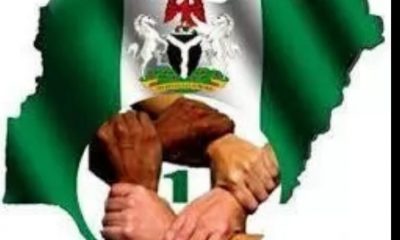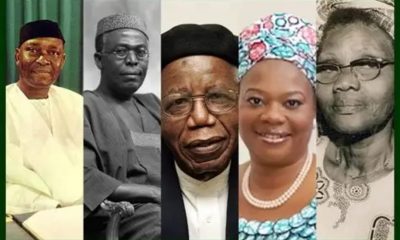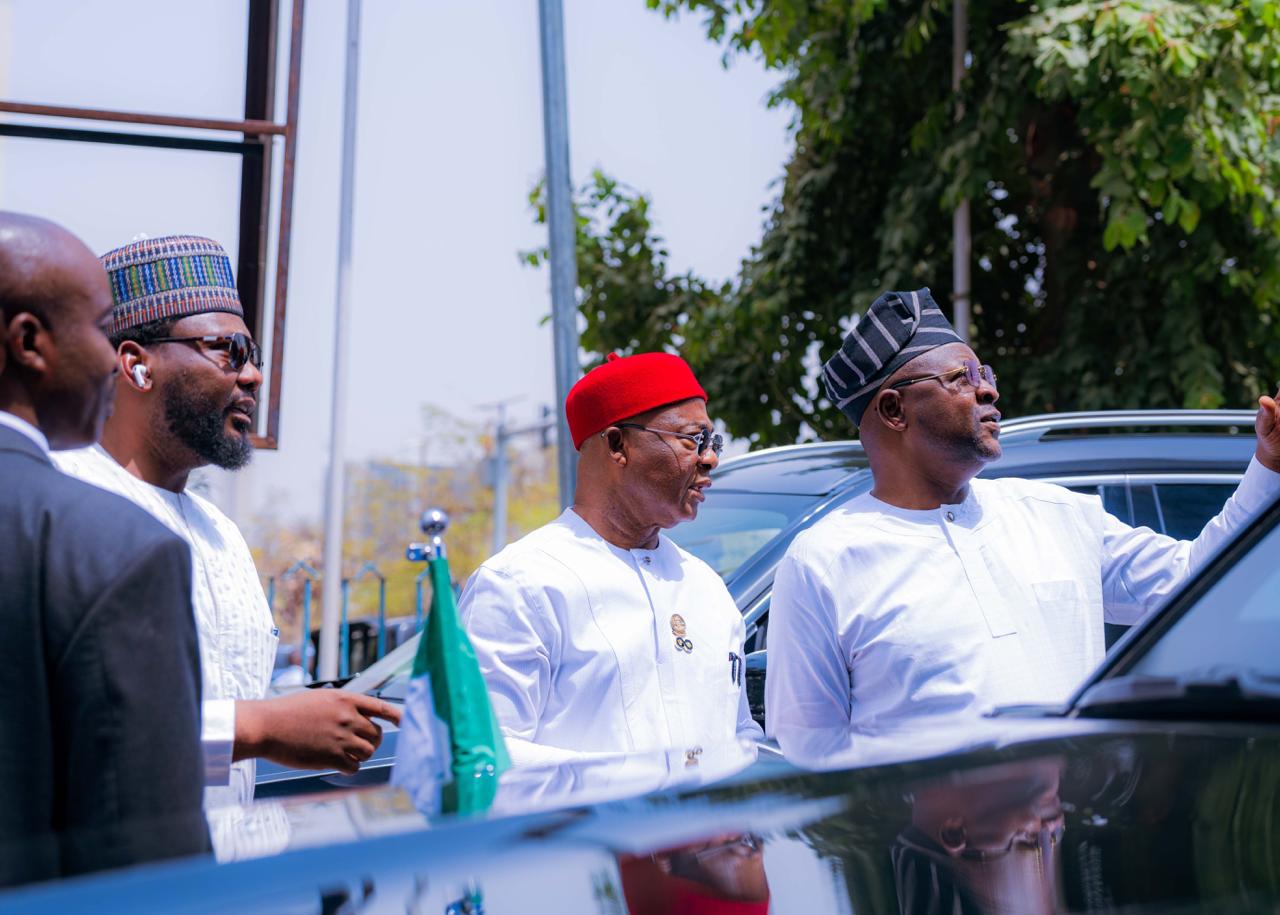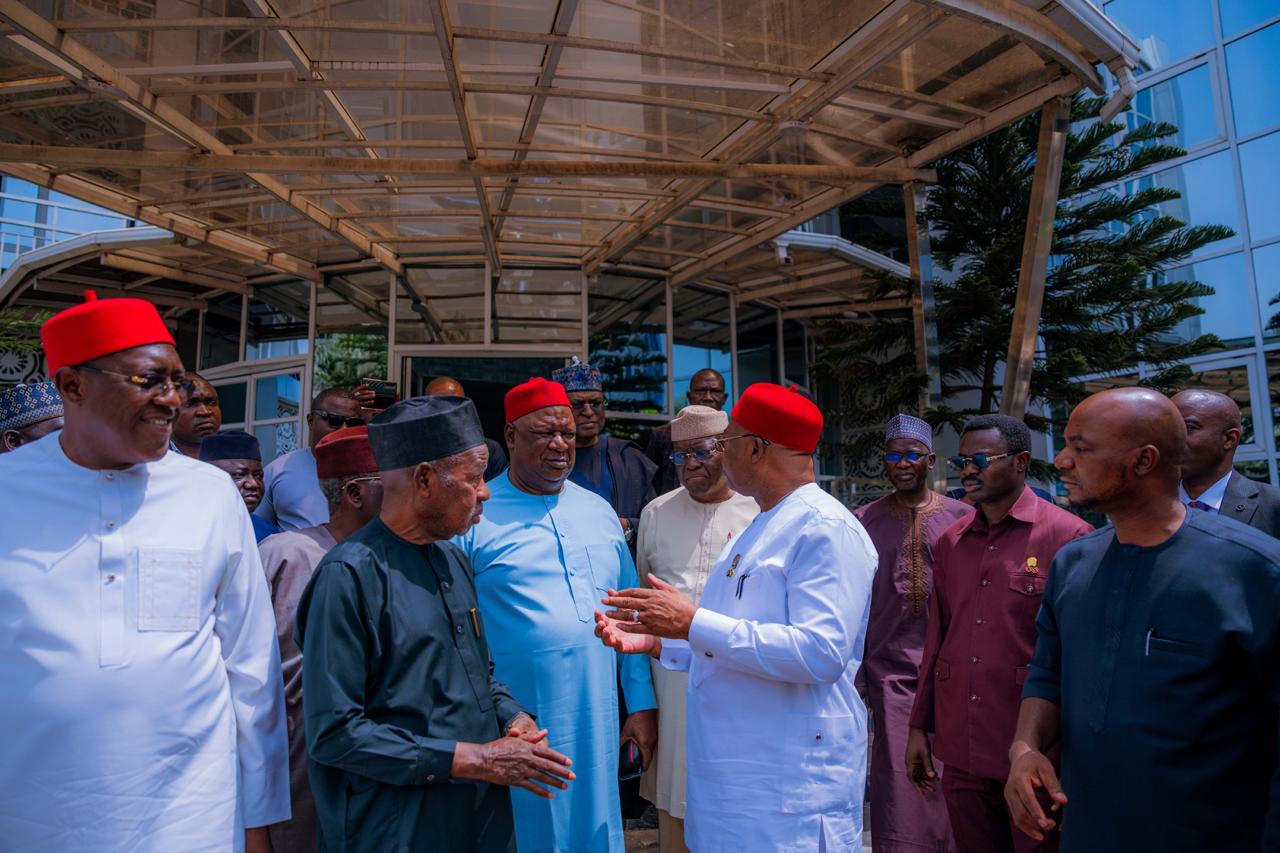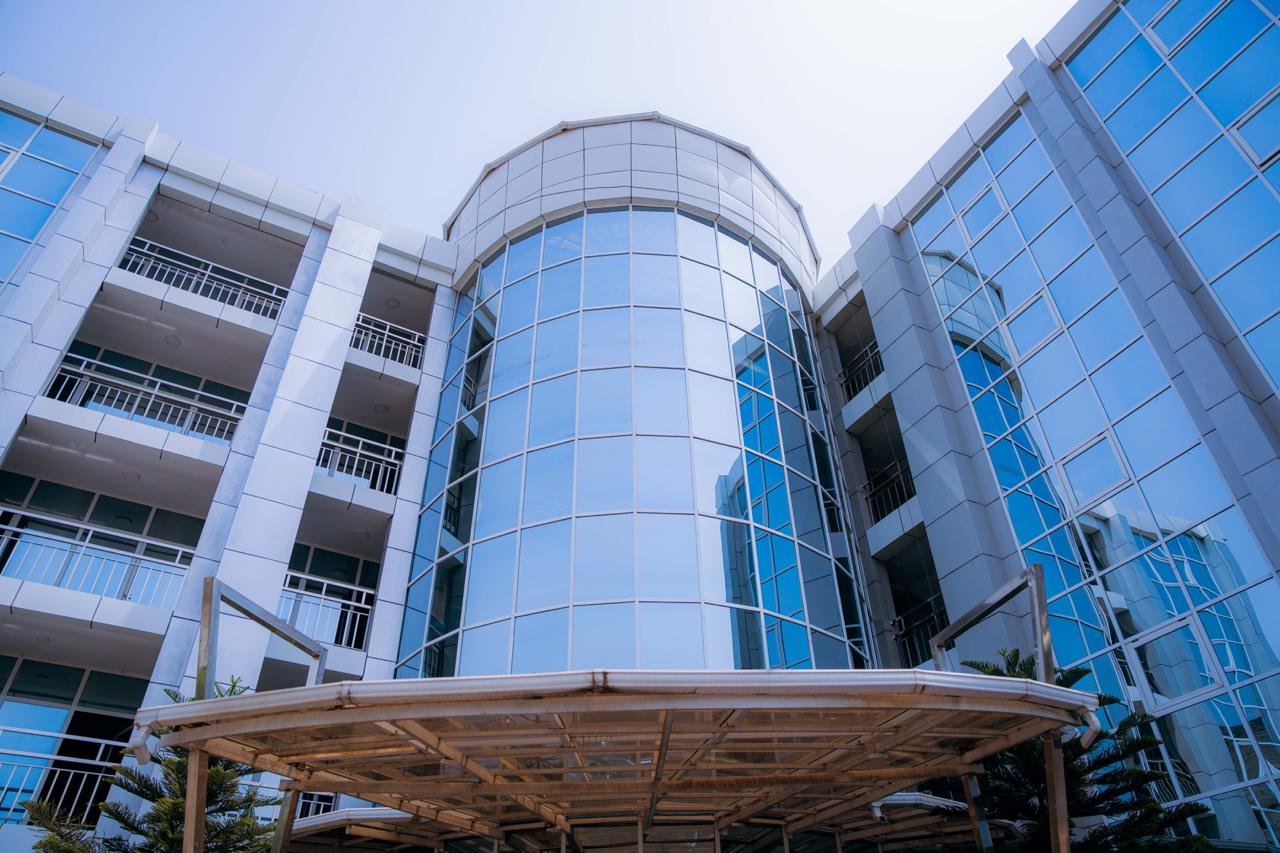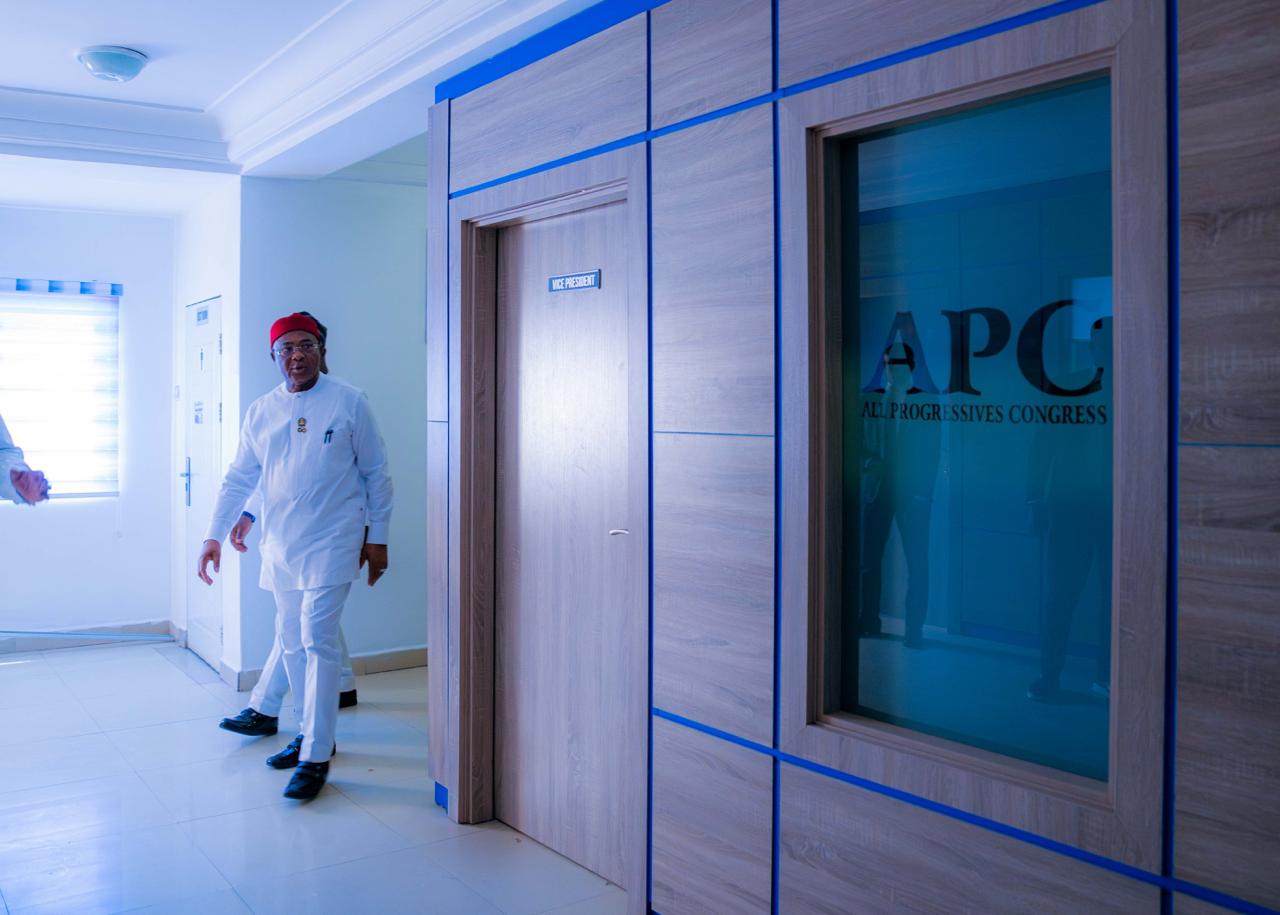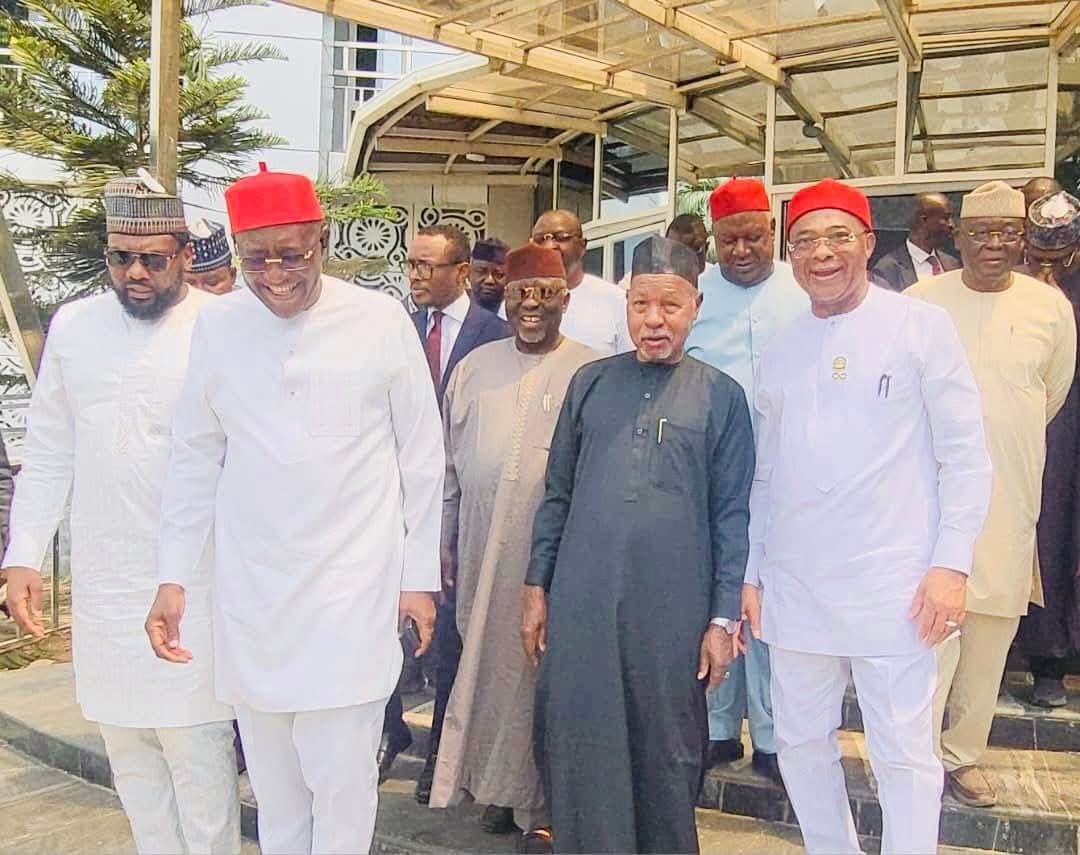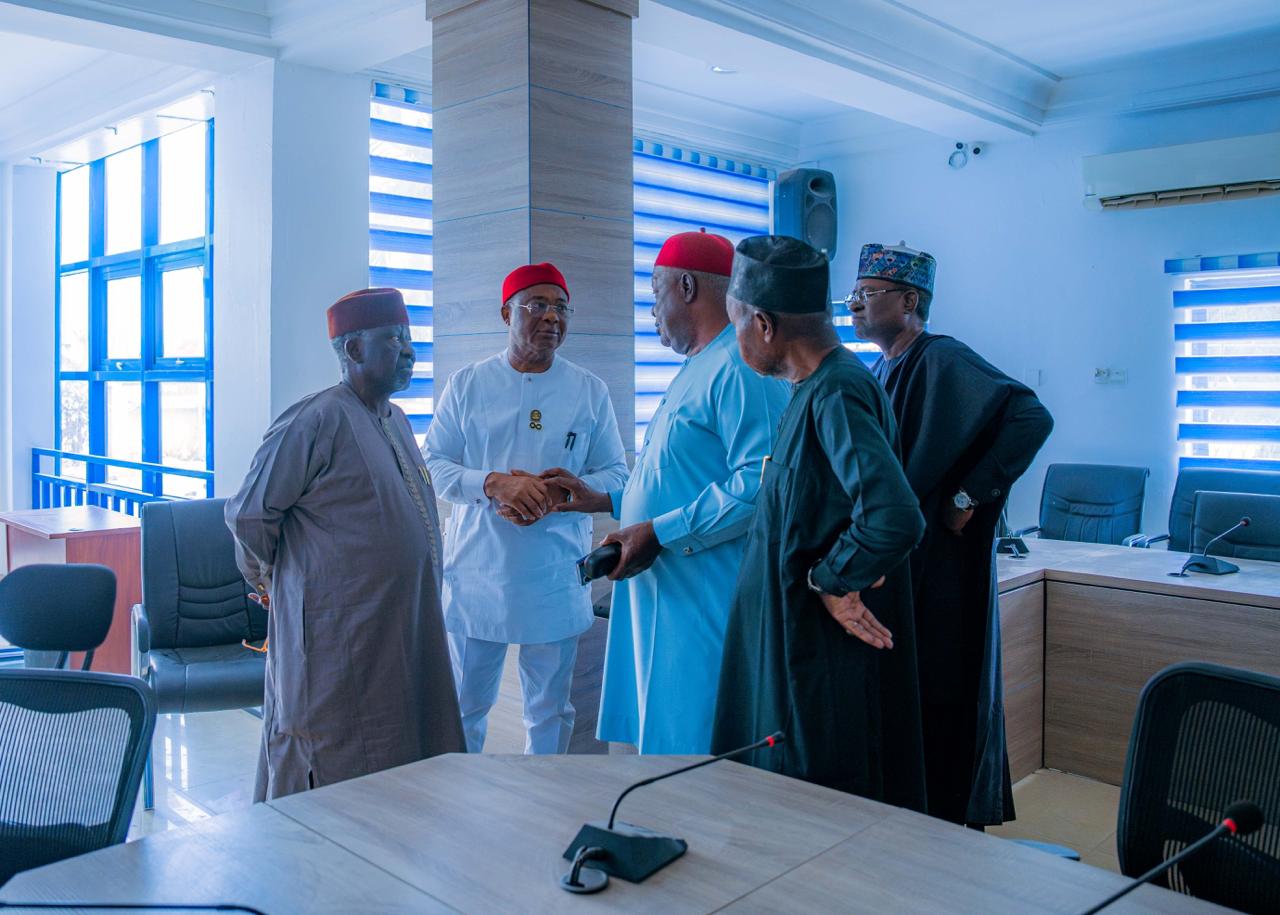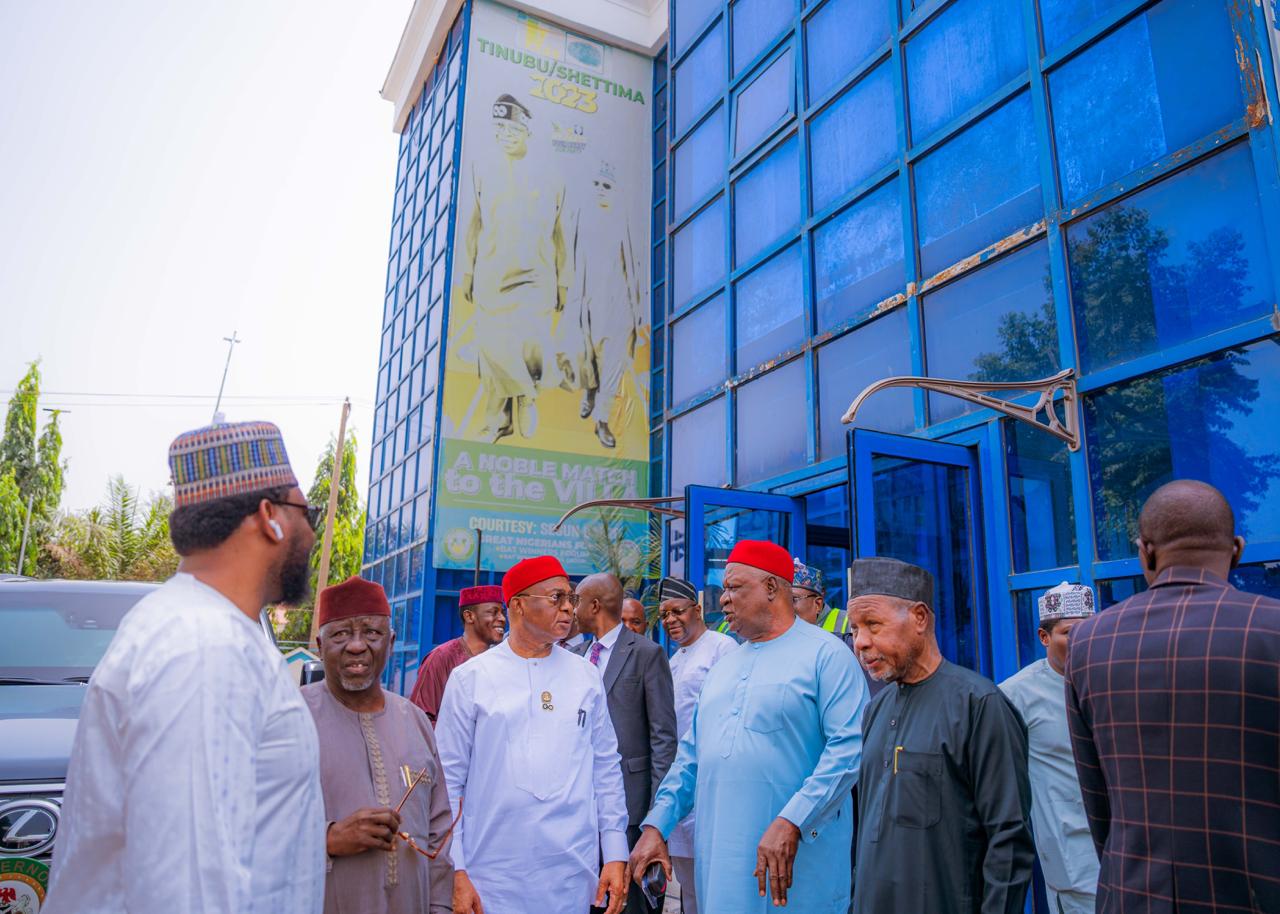Politics
Religion, Tribalism, and Political Issues Affecting Nigerians at Home and Abroad
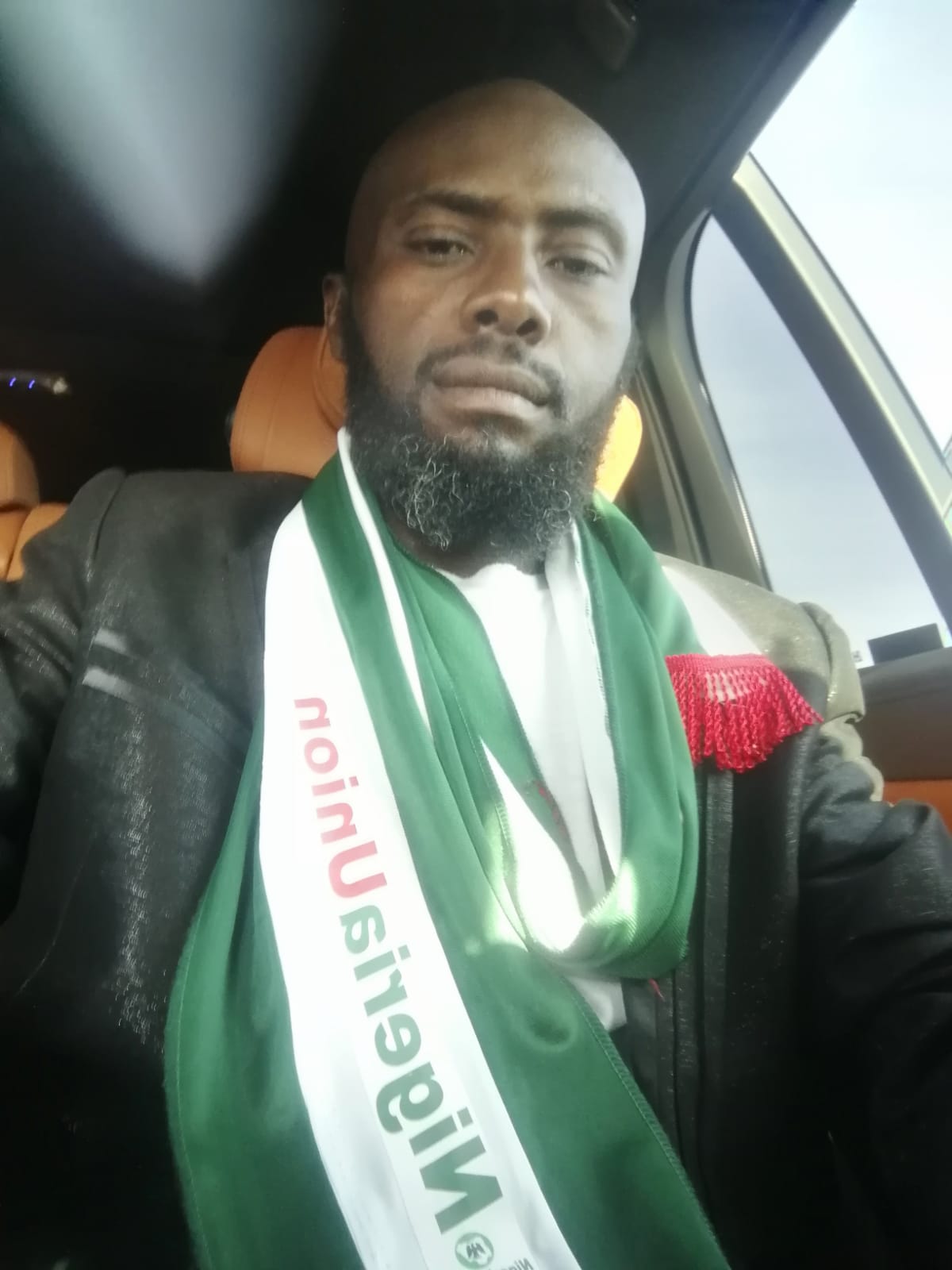
Religion, Tribalism, and Political Issues Affecting Nigerians at Home and Abroad
By George O. Sylvester
Nigeria, a nation blessed with vast natural resources, a rich cultural heritage, and a resilient people, faces significant challenges that threaten its very foundation. As former President Olusegun Obasanjo once noted,
“Nigeria is a complex country, and we have to be careful not to allow our diversity to become a source of weakness, but rather a source of strength.”
Unfortunately, instead of being a unifying force, Nigeria’s diversity has increasingly become a source of division, with religion, tribalism, and politics driving deep wedges between its people.
Religion: A Tool for Unity or Division?
Religion plays a significant role in the lives of Nigerians, shaping their values, governance, and social interactions. The country is almost evenly split between Christians and Muslims, with a minority practicing indigenous religions. While faith should ideally promote peace and moral conduct, Nigeria’s religious landscape has often been a battleground for political influence, social conflict, and even violence.
Religious differences have contributed to some of the country’s worst crises, from the 1966 coup and the subsequent civil war to the rise of extremist groups like Boko Haram. The insurgency, which started in the northeast, has left tens of thousands dead and displaced millions. However, religious tension is not confined to terrorism; periodic clashes between Christian and Muslim communities over land, politics, and governance have occurred in states like Kaduna, Plateau, and Benue.
Yet, the Quran reminds us:
“O mankind, indeed We have created you from male and female and made you peoples and tribes that you may know one another.” — (Quran 49:13)
Similarly, the Bible teaches:
“There is neither Jew nor Greek, slave nor free, male nor female, for you are all one in Christ Jesus.” — (Galatians 3:28)
Despite these messages of unity, religious leaders and politicians frequently exploit religious sentiments to gain followers and suppress opposition. Churches and mosques often serve as political arenas where leaders mobilize their congregations for electoral victories rather than promoting national unity. The recent controversy over Muslim-Muslim or Christian-Christian ticket debates in presidential elections further exemplifies how religion is often weaponized in Nigerian politics.
However, there have been instances where religion has fostered peace and unity. Initiatives such as interfaith dialogues, the National Mosque and National Christian Centre collaborations, and efforts by organizations like the Nigeria Inter-Religious Council (NIREC) have attempted to bridge the divide. If more religious leaders advocate for unity rather than division, Nigeria could harness its religious diversity for progress rather than conflict.
Tribalism and Political Struggles
Tribalism has long been a significant factor in Nigeria’s political and social landscape. With over 250 ethnic groups, Nigeria is one of the most ethnically diverse countries in the world. The three largest groups—the Hausa-Fulani, Yoruba, and Igbo—dominate national politics, often to the detriment of smaller ethnic minorities.
Since gaining independence in 1960, ethnic loyalties have frequently overshadowed national interests. The civil war (1967–1970) between the Nigerian government and the secessionist state of Biafra was one of the most devastating consequences of ethnic tensions. Although the war ended over 50 years ago, ethnic grievances persist. Many Igbos feel politically marginalized, while the Yoruba and Hausa-Fulani continue to dominate the political scene.
Ethnic-based political alliances have also fueled corruption and nepotism. Political parties in Nigeria often reflect ethnic interests rather than ideological differences. Leaders distribute resources and political appointments based on tribal affiliations rather than competence, leading to inefficiency in governance. The persistent calls for restructuring and self-determination by groups like the Indigenous People of Biafra (IPOB) and the Oduduwa Republic movement highlight the dissatisfaction of many ethnic groups with the current federal structure.
Even among Nigerians in the diaspora, ethnic divisions remain evident. Rather than uniting as one Nigerian community, ethnic groups frequently organize their separate events and institutions. A striking example of this division was seen in the recent passport intervention program in South Africa, which was designed to assist Nigerians abroad with passport renewal and other consular services. Unfortunately, the program was marred by controversy and infighting, with different ethnic and interest groups vying for control and influence, further highlighting the deep-seated divisions among Nigerians.
Politics and the Struggle for Power
Political instability has been a major hindrance to Nigeria’s development. The country has experienced multiple military coups, civilian regimes plagued by corruption, and electoral malpractices that undermine democratic principles. Despite transitioning to democracy in 1999, the political landscape remains fragile, with widespread voter suppression, election violence, and allegations of rigging.
One of Nigeria’s major political issues is the failure of leadership to address the country’s socio-economic challenges. Politicians often prioritize personal and ethnic interests over national development. The lack of accountability has led to widespread corruption, with billions of dollars stolen from public coffers while basic amenities such as electricity, healthcare, and education remain underfunded.
Additionally, political power struggles have fueled violence across the country. The farmer-herder clashes in the Middle Belt, banditry in the Northwest, and the resurgence of militancy in the Niger Delta all have political undertones. Many of these conflicts are exacerbated by poor governance, economic hardship, and a lack of political will to address root causes.
As Nigeria prepares for future elections, the need for electoral reforms, stronger institutions, and credible leadership has never been more critical. The success of the 2023 general elections demonstrated some progress, with the introduction of the Bimodal Voter Accreditation System (BVAS) reducing electoral fraud. However, more needs to be done to ensure free and fair elections that reflect the people’s will.
A Call for Unity and National Consensus
To overcome these challenges, Nigerians—both at home and abroad—must come together to forge a new national consensus, one that prioritizes unity, inclusivity, and the common good. As former President Olusegun Obasanjo stated,
“Nigeria’s future is bright, but we must work together to achieve it.
”
Similarly, Nigerian-American writer Teju Cole observed,
“The Nigerian diaspora is a complex and multifaceted phenomenon, and we must find ways to navigate its complexities.”
For Nigeria to progress, certain key actions must be taken:
1. Promoting National Identity Over Ethnic Loyalty
Nigeria must foster a national identity that transcends tribal and religious lines. This can be achieved through inclusive policies, unbiased historical education, and national programs that encourage unity.
2. Strengthening Institutions and the Rule of Law
A strong legal system that holds leaders accountable will reduce corruption and ensure that governance benefits all Nigerians, not just a privileged few. Electoral reforms and anti-corruption measures must be enforced to restore faith in the government.
3. Encouraging Religious Tolerance and Interfaith Dialogue
Religious leaders and institutions must actively promote peace, coexistence, and mutual respect among Nigeria’s diverse faith communities. Interfaith initiatives should be expanded to bridge divides and counteract extremist ideologies.
4. Fostering Unity Among the Nigerian Diaspora
Nigerians abroad should see themselves as ambassadors of one nation, rather than representatives of separate ethnic groups. The diaspora can play a key role in national development through investments, knowledge transfer, and advocacy for democratic governance.
5. Ensuring Economic and Social Development
Economic disparity is a major driver of conflict. Policies that promote job creation, education, and poverty alleviation will help reduce the frustration that fuels religious extremism and ethnic tension.
Conclusion
Now is the time for Nigerians—both within the country and in the diaspora—to rise above divisions and work toward a brighter, more unified future. Nigeria has the potential to be a global powerhouse, but only if its people can look beyond their differences and work together for the common good.
The road to unity is not easy, but as history has shown, great nations are built not on division, but on the strength of a united people. Nigerians must choose whether to be held back by their differences or to embrace their diversity as a tool for progress. The choice is clear: unity, peace, and development must take precedence over tribalism, religious intolerance, and political selfishness. Only then can Nigeria fulfill its vast potential and become the great country its people deserve.
Business
Renewed Hope Ambassadors Inspect RHA Secretariat
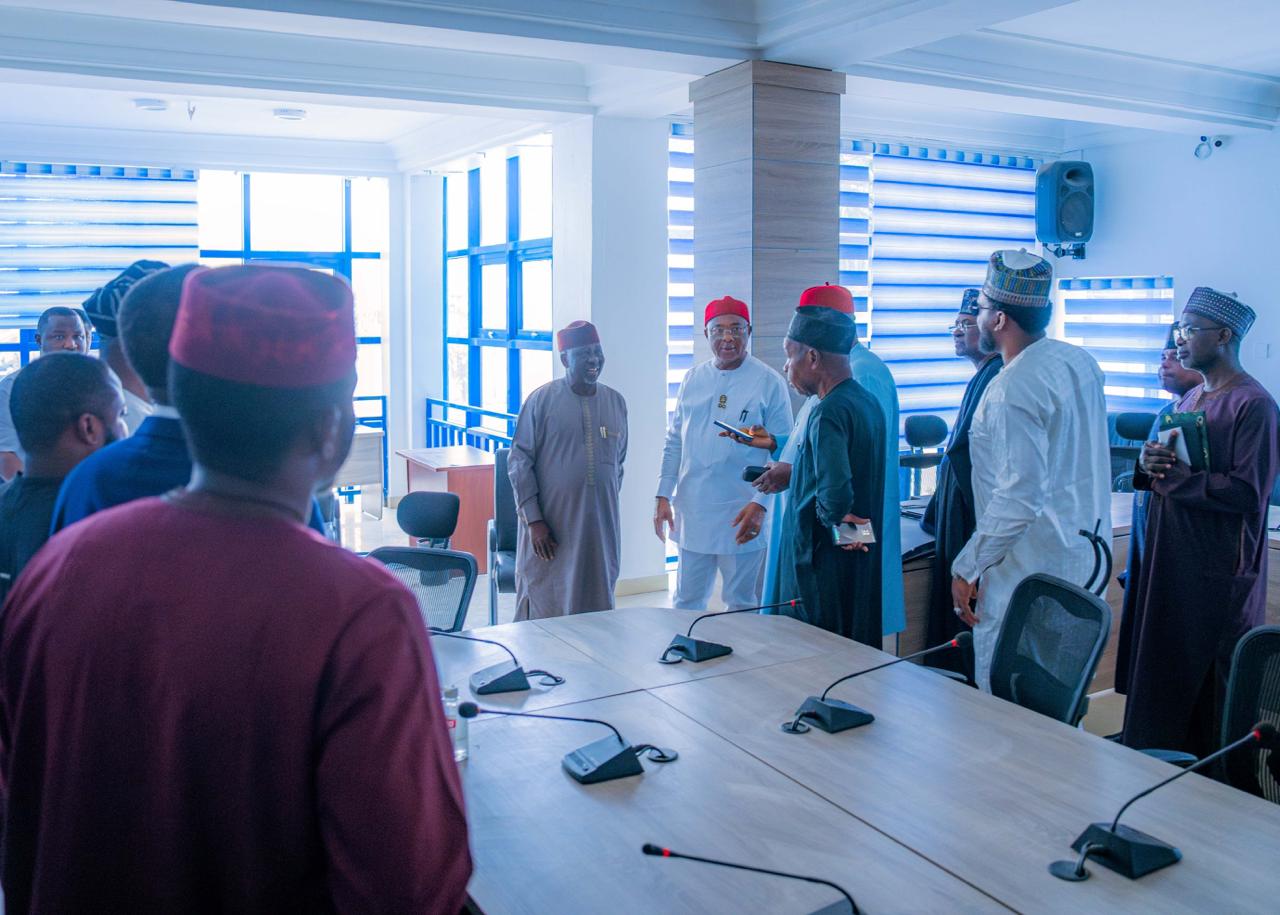
Renewed Hope Ambassadors Inspect RHA Secretariat
Renewed Hope Ambassadors, led by its Director-General and the Governor of Imo State, Hope Uzodinma, alongside Zonal Coordinators (NW, NC, SE), the Media & Publicity Directorate, and other key stakeholders, inspected the RHA Secretariat two days after President Bola Tinubu unveiled the Renewed Hope Ambassadors grassroots engagement drive in Abuja.
Politics
2027 Elections: PDP Certain to Appear on Ballot, Says Ajadi as Oyo Governorship Race Gains Momentum
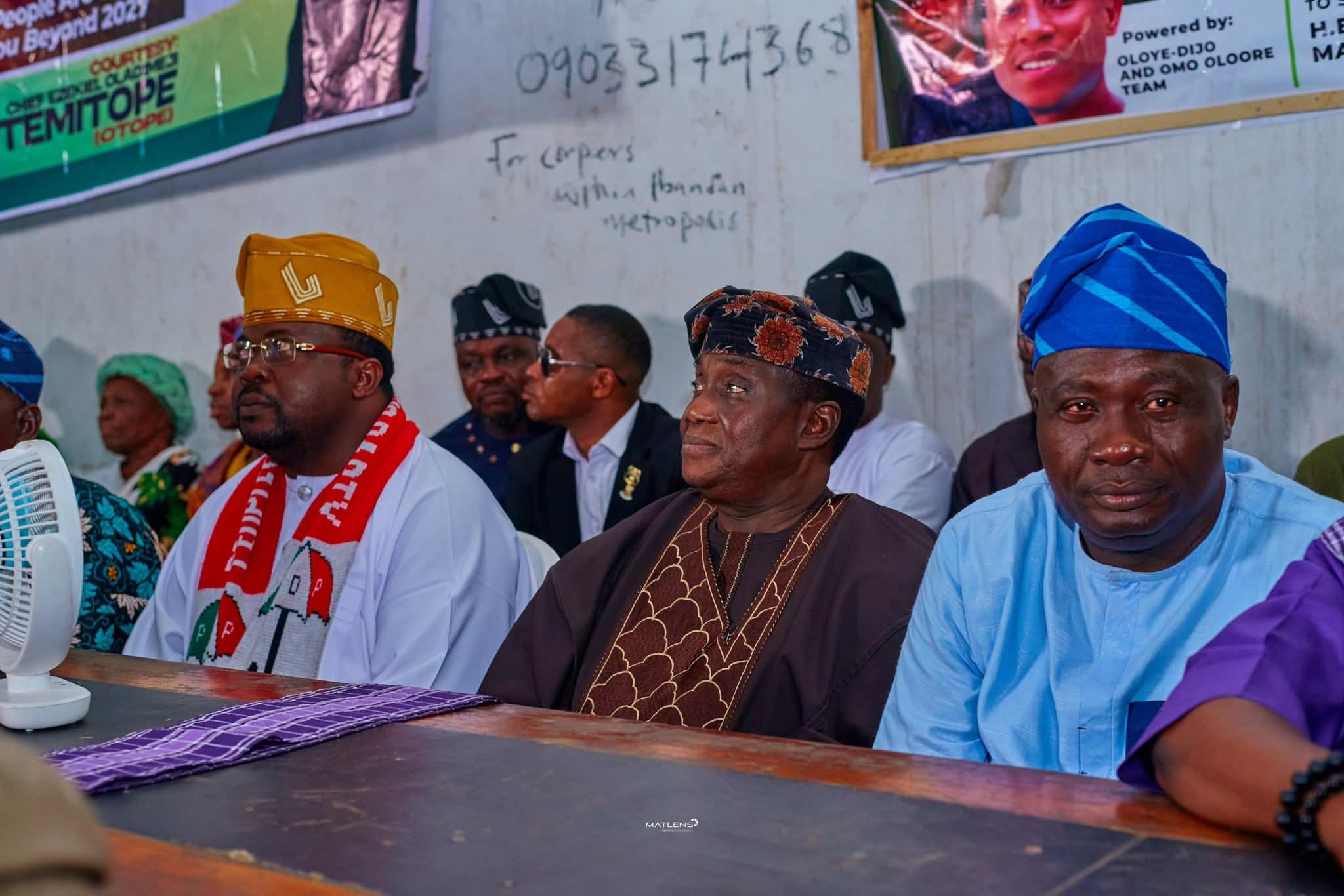
2027 Elections: PDP Certain to Appear on Ballot, Says Ajadi as Oyo Governorship Race Gains Momentum
Ibadan, Oyo State — The leading governorship aspirant in Oyo State under the platform of the Peoples Democratic Party (PDP), Ambassador Olufemi Ajadi Oguntoyinbo, has reiterated his intention to contest the 2027 governorship election, affirming his commitment to consolidate on the achievements of Governor Seyi Makinde.
Ambassador Olufemi Ajadi Oguntoyinbo is being interviewed by the journalists
Ajadi restated his ambition on Wednesday during the PDP Egbeda Local Government general party meeting held at the party secretariat, where party leaders, grassroots mobilisers and supporters gathered to deliberate on party unity and preparations ahead of future elections.
Speaking with journalists shortly before the commencement of the meeting, Ajadi described himself as a committed grassroots politician and a bona fide member of the PDP from Osengere Ward 8 in Egbeda Local Government Area.
“I have come here today to participate in the Egbeda Local Government PDP general meeting as a loyal member of our great party,” he said. “I am also here to reassure my people of my intention to contest for the governorship position in Oyo State in 2027 so as to continue the good legacy established by Governor Seyi Makinde.”
Confidence in PDP’s Electoral Participation
Reacting to concerns surrounding internal challenges within the PDP at the national level, Ajadi expressed strong confidence that the party would remain a major contender in the 2027 general elections.
I do not want to say anything negative because I believe the fathers and mothers of democracy in Nigeria will not allow anything that undermines democratic principles,” he stated.
According to him, the PDP remains a foundational pillar of Nigeria’s democratic journey.
“The PDP is central to the democracy we practise today. I am very sure that PDP will be on the ballot in 2027. Nigerians asked for democracy, not a return to military rule. Therefore, a one-party system is not an option for our country,” Ajadi added.
He also emphasised the need to safeguard democratic institutions, particularly the judiciary, stressing that Nigeria’s democracy must continue to operate within the principles of fairness, justice and the rule of law.
“By the grace of God, Nigerians will decide their future through democratic means, and I am confident that PDP will reclaim leadership in 2027,” he said.
Call for Unity, Prayers and National Renewal
The governorship aspirant used the occasion to call for national unity, urging Nigerians across religious and ethnic divides to embrace peace and collective responsibility, especially during the spiritual seasons of Ramadan and Lent.
“The prayers we are offering during Ramadan and Lent should be for peace, unity and positive change in our nation,” Ajadi said. “Muslims, Christians and all Nigerians must remain steadfast in faith and love for one another. Together, we can change the narrative of our country come 2027.”
Party Leaders Rally Support
The meeting attracted prominent PDP stakeholders and political leaders from across Egbeda Local Government Area, reflecting growing grassroots mobilisation ahead of the electoral cycle.
Among dignitaries present were Deputy Leader of the Oyo State House of Assembly, Hon. Sunkanmi Babalola; Chairman of Egbeda Local Government Council, Hon. Oyedele Sanda; Egbeda PDP Chairman, Chairman Ebenezer Olawale Alawe; and Vice Chairman of Egbeda Local Government Council, Hon. Ibrahim Oladebo, popularly known as Simple.
Other party stalwarts in attendance included Leader Busari Olayemi, Elder Caleb Oyelese, Leader Liadi Busari, Mrs. Jumoke Lawal, widely known as Iya Pineapple, and Hon. Lukmon Akinpelu, alongside several ward executives and grassroots mobilisers.
Party leaders at the meeting emphasised unity within the PDP structure, noting that sustained grassroots participation remains critical to maintaining the party’s strength in Oyo State politics.
Strengthening Grassroots Politics
Political observers at the gathering noted that Ajadi’s continued engagement with party members at the local government level underscores a strategic grassroots approach aimed at strengthening party structures ahead of the 2027 electoral cycle.
As preparations for the 2027 elections gradually gather momentum, Ajadi’s consistent reaffirmation of his ambition signals increasing political activities in the state, setting the stage for what promises to be a competitive governorship contest.
Politics
NATIONAL UNVEILING OF THE IGBO PRESIDENCY PROJECT (IPP)

NATIONAL UNVEILING OF THE IGBO PRESIDENCY PROJECT (IPP)
The Peaceful Path Toward Equity, Unity and Democratic Representation for the Igbo People of Nigeria
1. Introduction & Rationale
The Igbo Presidency Project (IPP) is a peaceful, pro-Nigeria, and pan-Igbo political advocacy initiative established by the Igbo Heroes and Icons Foundation. It is dedicated to the pursuit, in perpetuity, of electing—constitutionally and democratically—a President of Igbo extraction in the Federal Republic of Nigeria.
The IPP is premised on the principle that every major ethnic group in Nigeria must participate fairly in the leadership and governance of the nation, especially one that has contributed immensely to Nigeria’s unity, independence, economy, and democratic culture.
Since the early formation of political parties in Nigeria in the 1940s, the Igbo have been deeply active in the struggle for self-government and eventual independence. Notably, Igbo-led political movements viewed Nigeria as one indivisible entity and deliberately embraced inclusiveness, accommodating Nigerians of all tribes, religions, and ethnic backgrounds in leadership structures. This spirit was exemplified under the leadership of Dr. Nnamdi Azikiwe, whose NCNC reflected equitable representation across the North, West, and East.
The struggle for equitable rights and representation for the Igbo people is therefore non-negotiable, irreversible, and essential for national peace, cohesion, justice, and sustainable development.
This project calls upon Igbo communities in Southeast Nigeria, throughout the Nigerian federation, and across the global diaspora to unite in a common civic purpose: the restoration of dignity, representation, and rights through constitutional means.
2. Historical Context: Who Are the Igbo?
The Igbo are one of Nigeria’s three largest ethnic groups, concentrated in the southeastern region of the country, including Abia, Anambra, Ebonyi, Enugu, Imo, and parts of Delta and Rivers States. Estimates place the Igbo population at roughly 45 million people today, with vibrant diaspora communities across Europe, North America, the Caribbean, and West Africa.
Unlike many West African societies, traditional Igbo political organization was decentralized, rooted in autonomous villages and republican consensus systems rather than centralized kingdoms. This indigenous tradition fostered entrepreneurship, achievement through individual merit, and a culture of civic engagement.
Historically, the Igbo demonstrated uncommon sacrifices for Nigerian unity. For example:
In 1957, when Britain offered self-government to the regions if two agreed, Dr. Azikiwe rejected the offer because he believed the North should not be left behind, comparing Nigeria to “a fleet of ships” that must not abandon one vessel mid-voyage.
In 1959, Azikiwe again rejected an offer from Chief Awolowo that would have made him Prime Minister, choosing instead a coalition that preserved national balance and prevented crisis.
These are among the countless sacrifices made by the Igbo in the interest of peace and stability in Nigeria.
The Igbo also experienced one of the most tragic episodes in African post-colonial history—the Nigerian Civil War (1967–1970)—which resulted in the death of over one million civilians, mostly Igbo.
3. Post-War Reality: Marginalisation and Structural Exclusion
Despite their sacrifices, the post-war experience of the Igbo has been marked by deep structural injustice.
After the civil war, Igbo citizens who had legitimate bank savings were given only twenty pounds sterling, regardless of the amounts they held. This was followed by the declaration of many Igbo-owned homes as “abandoned properties,” particularly in Rivers State, where such properties were undervalued, seized, and sold under discriminatory conditions.
Other patterns of exclusion include:
Persistent relocation and dispossession of Igbo traders in Lagos and other states
Unequal state creation, leaving the Southeast with fewer states than other zones
Systematic denial of key national security and judicial positions to qualified Igbo citizens
Tenure extensions deliberately preventing Igbo succession in strategic offices
These realities continue to fuel perceptions of second-class citizenship, despite the Igbo having no other homeland outside Nigeria.
4. Systematic Injustice and the Unrewarded Sacrifices of the Igbo People
The call for an Igbo Presidency cannot be separated from the long record of sacrifices the Igbo have made for the unity, stability, and progress of Nigeria—sacrifices that have too often been met with exclusion rather than recognition.
From the earliest days of Nigeria’s amalgamation, through the independence struggle and the turbulent years that followed, the Igbo have consistently acted in favour of one united Nigeria, even at great cost to themselves. The massacres of 1953, the pogroms of 1966–1967, and the catastrophic genocide of the civil war remain among the darkest chapters in Nigeria’s history. Yet, despite these wounds, the Igbo people have repeatedly chosen forgiveness, reintegration, and renewed commitment to the Nigerian project.
One of the most defining sacrifices occurred in 1957 when Britain offered self-government to Nigeria’s regions on the condition that two of the three major regions accept. While the Western Region agreed and the North declined, Dr. Nnamdi Azikiwe—then leader of the Eastern Region—also refused, insisting that Nigeria must move forward together and that the North should not be left behind. Had he accepted, Nigeria would likely have fractured permanently into separate countries. The survival of Nigeria’s federation today is therefore inseparable from Igbo statesmanship and restraint.
Even in the political arrangements preceding independence, Igbo leaders repeatedly accepted less advantageous positions in order to preserve national balance. In 1959, Dr. Azikiwe declined the opportunity to become Prime Minister through a southern coalition, choosing instead a weaker ceremonial role to avoid pushing the North into opposition at independence—a decision he described as becoming “a prisoner in a gilded cage.”
Yet, rather than being honoured for such nation-building sacrifices, the Igbo have endured decades of collective demonization and structural punishment. The January 1966 coup was unfairly stamped an “Igbo coup,” despite evidence that Igbo officers played key roles in crushing the coup and that Igbo senior officers were also among its victims. No other ethnic group in Nigeria has been so persistently stigmatized in this manner.
Following the civil war, policies such as the infamous “twenty pounds” restitution—regardless of the savings Igbo citizens held—represented not reconciliation but economic devastation. The seizure of Igbo properties through the “abandoned property” system further dispossessed thousands of families, many of whom never recovered their homes, investments, or dignity.
In contemporary Nigeria, these patterns of exclusion continue through unequal representation in federal appointments, denial of career progression within national institutions, politically motivated removals of Igbo technocrats, and systematic sidelining of the Southeast in strategic national committees and decision-making structures.
Recent developments—including disproportionate ministerial allocations, dismissals of Igbo professionals from key economic agencies, and increasing threats of economic disenfranchisement in major commercial centres such as Lagos—reinforce the reality that marginalisation is not historical alone, but ongoing.
The consistent lesson is clear: patriotism has too often been rewarded with exclusion, and sacrifice has been met with structural imbalance. In a true democracy, such a pattern is unsustainable.
Therefore, the demand for an Igbo President is not a plea for favour, but a legitimate call for justice, equity, and national stability. Nigeria cannot continue to thrive while one of its most nation-building peoples remains permanently shut out of the highest office. The time has come to correct this imbalance peacefully, constitutionally, and democratically—by giving the Igbo people their rightful place in the leadership of their only homeland: Nigeria
5. National Justification for an Igbo Presidency
Beyond questions of ethnic sentiment, the demand for an Igbo President must be understood as a legitimate national necessity rooted in Nigeria’s history, contributions, sacrifices, and the principles of equity that sustain stable federations. The Igbo Presidency Project (IPP) is not an agitation against Nigeria, but rather a call for Nigeria to finally reflect its own democratic ideals through inclusive leadership representation.
The Igbo people are among the original occupants of their homeland long before colonial amalgamation created modern Nigeria. Since that colonial union, the Igbo have demonstrated an enduring instinct for national development, contributing immensely across all spheres of human endeavour—agriculture, commerce, industry, education, health, sports, and civic life. Their presence has never been limited to the Southeast; rather, the Igbo are uniquely pan-Nigerian in settlement, enterprise, and integration.
A defining characteristic of the Igbo is their uncommon openness to other ethnic nationalities. They are widely known for hospitality, inter-ethnic coexistence, and cross-cultural family ties. In many cases, Igbo families living outside their homeland adopt names and identities from host communities, reflecting deep social integration. Even Dr. Nnamdi Azikiwe, Nigeria’s foremost nationalist, gave Yoruba names to his first children born in Lagos—symbolic of the Igbo spirit of belonging everywhere in Nigeria.
Igbo communities also record the highest patterns of inter-tribal marriages across Nigeria, producing generations of Nigerians whose identities embody unity itself. This makes the Igbo question not merely regional but fundamentally national: no group has more invested emotionally, socially, and economically in Nigeria’s collective survival than the Igbo.
Economically, the Igbo remain among the most productive drivers of Nigeria’s internal trade and industrial energy. There is virtually no Nigerian town where Igbo entrepreneurs, artisans, builders, mechanics, traders, and professionals are absent. Their reputation for adaptability, innovation, and resilience has made them indispensable to Nigeria’s commercial ecosystem. This entrepreneurial culture is deeply rooted in the Igbo republican tradition—decentralized governance, merit-based advancement, and competitive excellence.
Historically, Igbo leadership has repeatedly demonstrated visionary commitment to national progress. A striking example is the industrial foresight of Dr. Michael Okpara, Premier of Eastern Nigeria, who proposed a steel complex that would have transformed Nigeria’s industrial base decades earlier. The federal refusal of this initiative, followed by its later fragmented execution outside the East, reflects a broader pattern of missed opportunities and structural sidelining of Eastern contributions.
Even after the civil war, highly qualified Igbo technocrats such as Dr. Eze Melari played central roles in national projects like Ajaokuta Steel, only to be removed through political manoeuvres that undermined competence and delayed national development. Nigeria’s failure to industrialize effectively cannot be separated from the systematic exclusion of capable contributors due to political imbalance.
The post-war era further entrenched Igbo marginalisation through policies such as the infamous “twenty pounds” restitution regardless of savings, and the widespread seizure of Igbo properties under the “abandoned property” framework. These actions reinforced perceptions of second-class citizenship for a people with no other homeland but Nigeria.
Politically, the exclusion of the Southeast from the presidency remains one of the clearest structural injustices in Nigeria’s leadership history. Since independence, nearly all regions have produced multiple Heads of State or Presidents, through democratic and military transitions alike, while the Southeast has remained the most persistently denied zone in the highest office of the land.
Equity demands fairness. In any federation, peace and stability are sustained when all major components feel represented at the centre. Continued denial breeds alienation, while inclusion fosters loyalty, trust, and unity.
The Igbo Presidency Project therefore represents more than an ethnic aspiration—it is a democratic correction, a moral restoration, and a strategic necessity for national renewal. Nigeria’s problems are not insurmountable, but they require competent, merit-driven, nationally invested leadership. The Igbo have consistently demonstrated these qualities across generations.
It is time, morally and politically, to allow the long-marginalised Southeast to contribute at the highest level—not as a concession, but as a rightful step toward a more balanced, prosperous, and united Nigeria.
6. The Igbo in Contemporary Nigeria & the Global Diaspora
Today, Igbo communities remain deeply engaged in national life and international diaspora networks. Igbo excellence is globally visible in entrepreneurship, innovation, literature, and governance.
Notable examples include:
Ngozi Okonjo-Iweala, globally respected for her economic leadership
Philip Emeagwali, credited with pioneering breakthroughs in computing
Indigenous industrial innovators such as Ezekiel Izuogu and Innoson Motors, often under-supported despite their contributions
The continued neglect of Igbo potential is not merely an ethnic issue—it is a national development failure.
7. Vision, Mission and Values of IPP
Vision
A united, equitable, democratic Nigeria where all peoples, including the Igbo, share power, dignity, and opportunity at the highest level.
Mission
To mobilize Igbo communities—locally, nationally, and internationally—to build consensus, political strategy, and civic engagement that culminates in the constitutional election of an Igbo President.
Core Values
Peaceful Advocacy
Civic Empowerment
Equity and Fairness
Inclusivity
Democratic Participation
8. Strategic Objectives
Advocacy & Sensitisation: Promote awareness among Igbo communities and Nigerians at large about the importance of equitable representation in national leadership for peace and unity.
Voter Education: Ensure widespread knowledge of electoral processes, civic rights, and political organization.
Diaspora Mobilization: Build a global network of supporters to complement grassroots and national efforts.
Partnership & Alliances: Engage like-minded groups interested in inclusive governance across Nigeria and globally.
Leadership Development: Groom and mentor future leaders from the Igbo community geared toward national service and presidency eligibility.
Data & Research: Conduct rigorous historical, political, and sociological studies to inform policy proposals and strategic direction.
9. Proposed Sub-Projects & Campaign Programmes
To ensure the IPP is systematic and sustainable, the following sub-projects and campaign initiatives are proposed:
A. Igbo Political Empowerment Academy (IPEA)
A specialized institution for political training, civic education, leadership readiness, and strategic campaigning.
B. Global Igbo Civic Forum (GICF)
A diaspora network that fosters global dialogue, lobbying, and resource mobilisation supporting the IPP agenda.
C. Youth Engagement & Future Leaders Programme
Focused on mentoring Igbo youths in political processes, debate, advocacy, and public service.
D. Media and Narrative Counter-Campaign (MNCC)
To counter misinformation, promote positive Igbo narratives, and build bridges with national and international media.
E. Research & Policy Development Wing
A think-tank producing position papers, policy proposals, and historical analyses to support constitutional arguments and widespread understanding.
F. Cultural Revival & Identity Project
This engages arts, festivals, language preservation, and cultural education to strengthen pride and identity among Igbo youth and diaspora.
10. Organisation & Structure of IPP
The IPP will be governed by a hierarchical and inclusive framework to ensure accountability, representation and grassroots engagement:
The Governing Council – Highest decision-making body of IPP consisting of esteemed Igbo Heroes and Icons.
Board of Trustees – Founders of the Igbo Heroes and Icons Foundation.
National Executive Committee – National leadership team.
International/Diaspora Executive Committee – Global coordination body.
Zonal & State Executive Committees – State-level governance structures.
Local Government & Ward Executive Committees – Grassroots organisation.
Polling Unit Grassroots Committees – Base ten-member bodies per polling unit to mobilise citizens.
11. Call to Action
This is a clarion call for peace, unity, and democratic equity. We invite Igbo youths, elders, professionals, women leaders, and all stakeholders of goodwill—inside and outside Nigeria—to join in advancing this historic cause.
By joining hands, minds, logistics, financial and intellectual resources, we can realize a Nigeria of equal opportunities (COEO)—a nation that celebrates diversity and includes all peoples meaningfully in its leadership structures.
Our Tomorrow Starts Today!
SIGNED
HON. PRINCE CHINEDU NSOFOR (KPAKPANDO NDIGBO)
NATIONAL COORDINATOR IGBO PRESIDENCY PROJECT AND FOUNDING PRESIDENT IGBO HEROES AND ICONS FOUNDATION
19/02/2026
-

 celebrity radar - gossips6 months ago
celebrity radar - gossips6 months agoWhy Babangida’s Hilltop Home Became Nigeria’s Political “Mecca”
-

 society5 months ago
society5 months agoReligion: Africa’s Oldest Weapon of Enslavement and the Forgotten Truth
-

 society6 months ago
society6 months agoPower is a Loan, Not a Possession: The Sacred Duty of Planting People
-

 news7 months ago
news7 months agoTHE APPOINTMENT OF WASIU AYINDE BY THE FEDERAL GOVERNMENT AS AN AMBASSADOR SOUNDS EMBARRASSING


